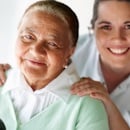
Social Media
Online social networking has become a significant part of everyday communication for people of all ages across the world (Henderson & Dahnke, 2015). Online networking via social media began as a trend among internet-savvy young people and has now become a cultural norm, even for those who are not technologically savvy.
Social media has changed the way people communicate with family, friends, and peers. Nurses are not immune to the allure of the internet or the ability to connect instantaneously with others and track discussions across the web as they happen (Griffis & Falder-Saeed, 2016). Nurses need to be aware of the proper use of social media in their personal and professional lives to avoid violating patients’ rights to confidentiality and privacy and ultimately compromising the integrity of nurses (Henderson & Dahnke, 2015).
Social networking sites provide information and tools essential to professional growth in nursing. By connecting with, visiting, and even "liking" pages managed by professional nursing organizations, such as the American Nurses Association (ANA) and the American Association of Critical-Care Nurses (AACN), nurses can access timely information in nursing, such as standards of practice, practice alerts and certification information (Jackson, Fraser & Ash, 2014).
Once information is posted on social media sites, it is impossible to control how that information is disseminated, and to whom the information is accessible. Social networking sites are open to all and may be shared by administrators, patients, and anyone else who may have an interest in the discussion. It is prudent for nurses to remember this fact and take it into consideration when posting on a social media site so as not to cross ethical, legal, or moral boundaries by sharing confidential information, photos, or other information (Henderson & Dahnke, 2015). Keep in mind that sharing pictures and posting about your patients is a HIPAA violation and may result in being fined. Click here for more information on HIPAA for Professionals
Nurses have a professional obligation to understand the nature, benefits, and consequences of participating in social networking of all types (American Nurses Association [ANA], 2011). Social media networking offers many benefits to individual nurses as long as it is used appropriately.
For more information about social media considerations and the professional nurse, refer to the RN.com course Social Media Networking for Nurses: What You Should Consider.
References
American Nurses Association (ANA). (2011.). ANA’s principles for social networking and the nurse: Guidance for registered nurses. Silver Spring Maryland
Griffis, L., & Falder-Saeed, K. (2016). Perceptions of the influence of social media and therapeutic relationships on nurses: A systematic review protocol of qualitative evidence. JBI Database of Systematic Reviews and Implementation Reports, 14(11), 21-30.
Henderson, M. & Dahnke, D. (2015) The ethical use of social media in nursing practice. MedSurg Nursing, 24(1), 62-64.
Jackson, J., Fraser, R., & Ash, P. (2014). Social media and nurses: Insights for promoting health for individual and professional use. The Online Journal of Issues in Nursing , 19(3).




